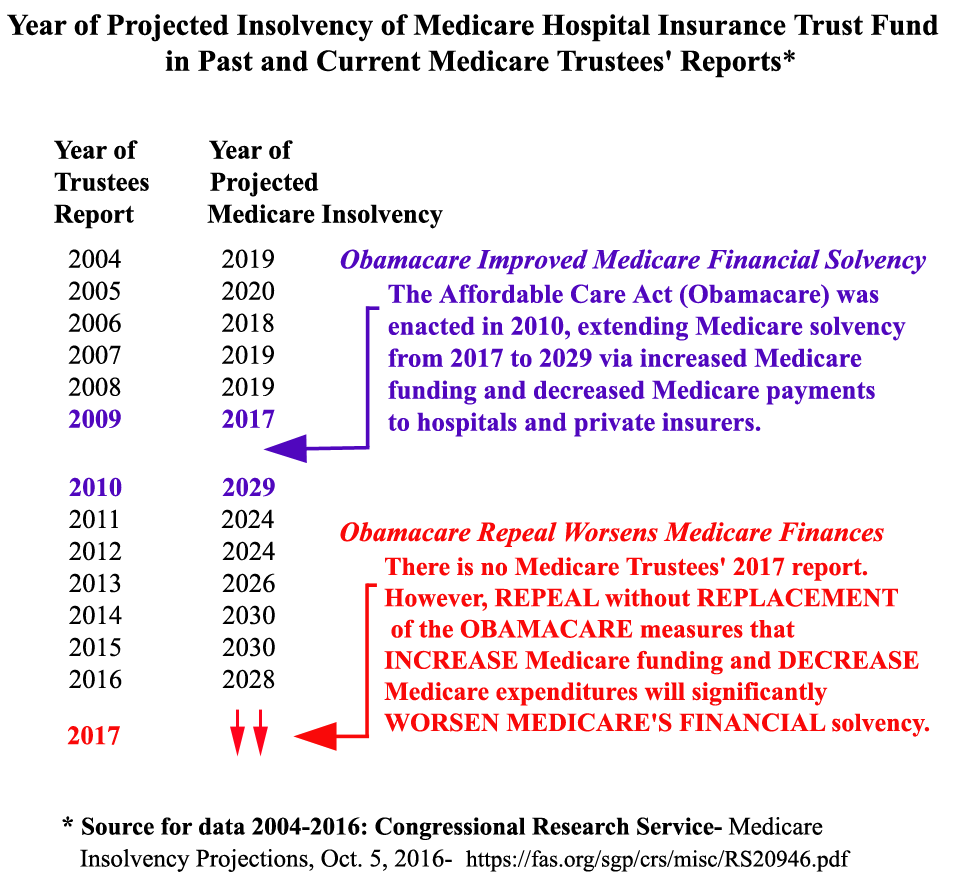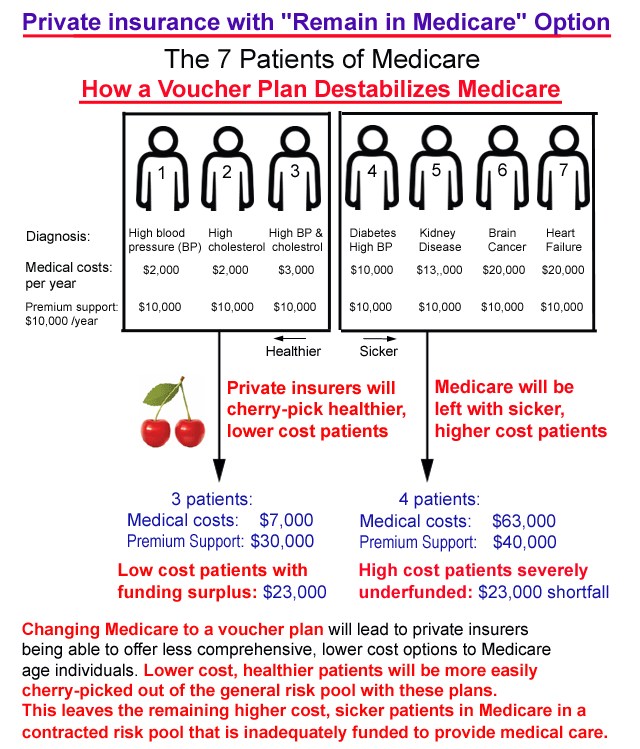 The Affordable Care Act (Obamacare) contains measures that increased funding to the Medicare Hospital Insurance Trust Fund and decreased payments made by Medicare to hospitals and private insurers. With Obamacare, Medicare’s financial solvency has improved and been extended from 2017 to 2028. If Obamacare is repealed without replacing measures helping Medicare finances, Medicare’s financial solvency will substantially worsen.
The Affordable Care Act (Obamacare) contains measures that increased funding to the Medicare Hospital Insurance Trust Fund and decreased payments made by Medicare to hospitals and private insurers. With Obamacare, Medicare’s financial solvency has improved and been extended from 2017 to 2028. If Obamacare is repealed without replacing measures helping Medicare finances, Medicare’s financial solvency will substantially worsen.
Basic Explanation Detailed Version

Health Care Plan Bills & Medicare
Financial Solvency
Eric Roehm, MD June 28, 2017 update
The Senate health bill proposal that repeals the 0.9% tax that applies to income greater than $200,000/ year. Every dollar of this tax goes directly to Medicare Hospital Insurance Trust Fund. Those that have an interest in maintaining Medicare financial solvency should be concerned. Details
AARP sounds the alarm- $117 billion taken from Medicare
 Medicare Advantage plans have the benefit of providing additional options for the Medicare patient. Medicare Advantage plans have been substantially more costly for the Medicare program than traditional Medicare plans for the care of similar patients. This excess cost has significantly decreased with legislation in the Affordable Care Act, although Medicare Advantage plans remain more expensive. The projected cost to the Medicare program for not continuing the legislation reducing excess spending in Medicare Advantage plans is 350 billion dollars. MORE…
Medicare Advantage plans have the benefit of providing additional options for the Medicare patient. Medicare Advantage plans have been substantially more costly for the Medicare program than traditional Medicare plans for the care of similar patients. This excess cost has significantly decreased with legislation in the Affordable Care Act, although Medicare Advantage plans remain more expensive. The projected cost to the Medicare program for not continuing the legislation reducing excess spending in Medicare Advantage plans is 350 billion dollars. MORE…
–Medicare Advantage plans- cherry-picking patients– personal experience
–Detailed look at increased costs of Medicare Advantage plans
–Medicare Advantage plans and upcoding of diagnoses

Risk pool analysis explains the success and failure of:
–private insurers where medical exclusions are allowed
–private insurers in Medicare Advantage plans
–Obamacare health exchanges
–Effect of a previously proposed premium support plan and the care of the sickest Medicare patients
![]()
Voucher Plan for Medicare
Medicare-at-Risk © Eric Roehm, M.D. 2017


